
Reconstructing Lenin: An Intellectual Biography
By Tamás Krausz
552 pp, $34 pbk
Reviewed by Corinna Lotz
“… So what shaped Lenin to become the man he did? Krausz firmly places the Russian revolutionary into historical context, from his birth in 1870 up until his premature death in January 1924…. Under harsh circumstances, long spells in prison, illegality and exile, Lenin’s personality, Krausz says, was ‘an interesting alloy of tough and gentle traits … with undoubtedly a predominance of the former’. Lenin the man emerges from this account as mentally and physically courageous, as well as emotionally sensitive. He was not only an obdurate and loyal political comrade,
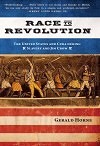
Gerald Horne’s latest book is an ambitious transnational history of the United States and Cuba from the 1700s to the 1959 Cuban Revolution. It focuses on the shared and interconnected histories of slavery, the slave trade, Jim Crow, and the struggles against these oppressive systems in the two regions. | more…
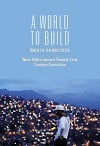
The reason for socialists to have an interest in the situation in Latin America today is simple; the most significant political advances in the world today are taking place in Latin America. The Chilean revolutionary Marta Harnecker’s book A World to Build is perhaps the most important English language attempt so far to analyse and to move forward the discussion on the left internationally around these changes. | more…

Ecologist, biomathematician, philosopher of science, and Monthly Review author Richard Levins died January 19 at the age of 85. John Rock Professor of Population Sciences at Harvard T.H. Chan School of Public Health, Levins wrote several articles over the years for Monthly Review magazine, and co-authored, with Richard C. Lewontin, Biology Under the Influence: Dialectical Essays on Ecology, Agriculture, and Health
One of his most popular Monthly Review articles was “How to Visit a Socialist Country,” MR vol. 61, no. 11
Here’s an eloquent remembrance, “The People’s Scientist,” just written by Pankaj Mehta for Jacobin magazine | more…

For over a decade, the American Psychological Association colluded with the Pentagon and CIA in endorsing and participating in torture as part of national security interrogations and forced feeding at Guantánamo Bay and elsewhere. Last summer, the APA officially changed its policy and barred psychologists from participating in these practices. Then a few days ago, the APA published in its online journal PsycCRITIQUES a review of The Hidden Structure of Violence:
“The Hidden Structure of Violence offers a psychologically sophisticated analysis of violence, ideal for curious lay readers and students…. It might be fair to say that Pilisuk and Rountree’s analysis of violence
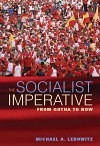
Economics for Activists invites Monthly Review readers in San Jose and the San Francisco Bay Area to save January 25 at 7:00 pm
Come to the San Jose Peace and Justice Center (48 South Seventh St., San Jose) to discuss Michael Lebowitz’s latest book, The Socialist Imperative: From Gotha to Now
In a little more than a decade, economist Michael A. Lebowitz has written several major works about the transition from capitalism to socialism. Here, he develops and deepens the analysis by tracing major issues in socialist thought from the nineteenth century through the twenty-first.
From organizer Greg Miller:
“We invite participants, whether or not they have

Ellen Meiksins Wood, noted political theorist and socialist historian, author of a number of books and a professor at York University for three decades, has died of cancer at her Ottawa home at the age of 73.
With Harry Magdoff and Paul Sweezy, she was coeditor of Monthly Review magazine from 1997 to 2000. With current MR editor John Bellamy Foster, Ellen edited two books for Monthly Review Press.
Read John Bellamy Foster’s remembrance of her on MRzine. | more…
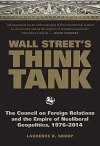
Broadcasting from Berkeley’s radio station KPFA (94.1 FM), January 15, Peter Phillips and Mickey Huff of the Project Censored Show spend the hour in conversation with historian Laurence Shoup
Shoup’s new book, Wall Street’s Think Tank: The Council on Foreign Relations and the Empire of Neoliberal Geopolitics, is a study of the Council on Foreign Relations. In this interview, Shoup describes the CFRas “the most influential private organization in the country,” and traces how it connects major U.S.corporations with government, academia, and media.
https://monthlyreview.org/wp-content/uploads/2016/01/PROJECT-CENSORED-011516.mp3
Chuck Mertz of This Is Hell! radio (FM 89.3) interviews Henry A. Giroux
on his latest book, America’s Addiction to Terrorism
“This is Hell is a weekly longform political interview program broadcast across Chicago on WNUR since 1996. Every Saturday morning, Chuck Mertz works off his news hangover by talking to the journalists, authors, and activists working to make this world a slightly less hellish place….”
Episode 882: Terror Firma
| more…

The American Revolution
Pages from a Negro Worker’s Notebook
By James Boggs
With an Introduction by Grace Lee Boggs and additional historical and personal commentary
James Boggs, born in Marion Junction, Alabama, never dreamed of becoming President or a locomotive engineer. He grew up in a world where the white folks are gentlemen by day and Ku Klux Klanners by night. After graduating from Dunbar High School in Bessemer in 1937, Boggs took the first freight train north, bumming his way through the western part of the country, working in the hop fields of the state of Washington, cutting ice in Minnesota, and finally ending up
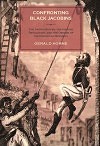
“It seems as if we could write the history of the nearly the whole of the Western World by detailing the history of the island that I believe Cristobal Colon dubbed Hispaniola, or perhaps it was Bartolomé de las Casas, the 16th-century Spanish historian, social reformer and Dominican friar who deserves the credit for this. And the naming of the Island itself is a microcosm of conquest or imperialism. The Taino Amerindians, according to de las Casas, called the island ‘Haiti’ or Mountainous Land,” and in 1804 revolutionary leader Jean-Jacques Dessalines recovered it as the official name of independent Saint-Domingue, as a tribute to the

This book should be of interest to anyone constructing an understanding of the causes of violence, particularly as fed by the power motive and influenced by hidden psychological processes. It is a “must read” and a valuable reference for one’s personal library….
I used the 2008 book in my psychology of aggression class and my peace psychology class. I feel that book was one of the best resources I had and an education for our students. I am now making plans to use the 2015 book in adult learning classes. | more…

These outstanding works have been selected for excellence in scholarship and presentation, the significance of their contribution to the field, and their value as important—often the first—treatment of their subject. | more…









